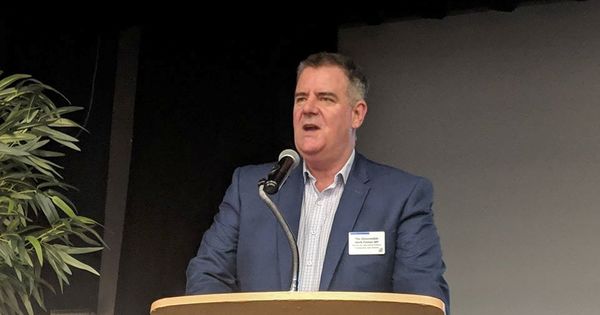By Jeremy Sollars
Primary producers across the Southern Downs and Granite Belt are awaiting an announcement from the Queensland Government on the annual review of the region’s drought declaration.
The region’s Local Drought Committee (LDC) is understood to have met on Monday 20 April and will make a recommendation to Queensland Agriculture Minister Mark Furner on continuation or revocation of the drought declaration shortly, if it has not already done so.
The LDC includes local primary producer representatives but the membership of the committee is kept confidential by the government. The committee normally meets in late April each year and considers summer rainfall and other “seasonal conditions” such as pasture growth in making drought declaration recommendations.A spokesman for Mr Furner told the Free Times today – Thursday 30 April – his office “expects local recommendations to be made over the next couple of weeks, and any announcements to be made once the Minister has received their recommendations”.
While the minister makes the formal announcement about drought declarations, in practice agriculture ministers normally accept the recommendations of Local Drought Committees.
The Southern Downs Regional Council area has been drought-declared since May 2018.
Despite above-average rainfall across the Southern Downs and Granite Belt in early February the region has received barely any follow-up rain since then and winter cropping plans in the wider Warwick area are minimal to say the least.
On the Granite Belt the Ballandean area received the best falls in February but horticultural producers to the north and west of Stanthorpe were not quite as fortunate, although irrigation dam supplies did receive some boost.
President of the Granite Belt Growers Association Angus Ferrier – who group represents both fruit and vegetable growers and made a recent submission to the LDC – says horticulturalists in the Stanthorpe area “are of the firm view that the drought hasn’t broken”.
“We circulated a survey to our members at the end of February asking some pretty basic and frank questions about where water storages were at,” Angus told the Free Times.
“In simple terms most irrigation dams on the Granite Belt are less than 50 per cent full which is very tight and which gives very little certainty of production for the coming spring and summer seasons and obviously we’re not expecting big rain through winter.
“People with tree crops are feeling on the edge a little bit and for veggie growers the water situation affects decisions being made now about ordering seedlings ahead of the next planting period in September through to October.”
Angus said key benefits of the drought declaration for Granite Belt producers include the ability to access electricity rebates and dam de-silting and emergency water infrastructure assistance, although the latter needs to be extended to vegetable producers.
“The government’s view is those growers have the ‘choice’ to not plant a crop but as an association our view is that assistance needs to be extended to annual crop growers if the drought weather pattern is going to persist,” he said.
The Granite Belt’s demand for seasonal harvest workers has now significantly reduced with the cooler months here, but Angus Ferrier said the region’s horticultural producers are already looking ahead to their requirements for spring and summer and the way COVID-19 will affect the movement of those workers nationally.
He said they will be keenly awaiting further government direction of protocols around harvest labourers and any “lessons learnt” from producers in northern parts of Queensland in the coming months.







